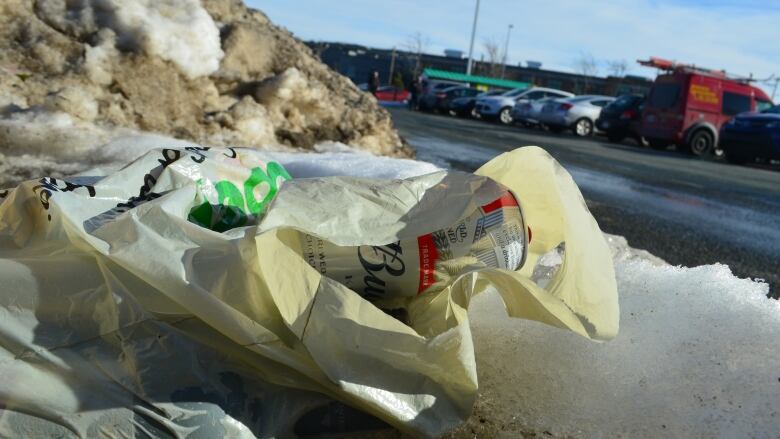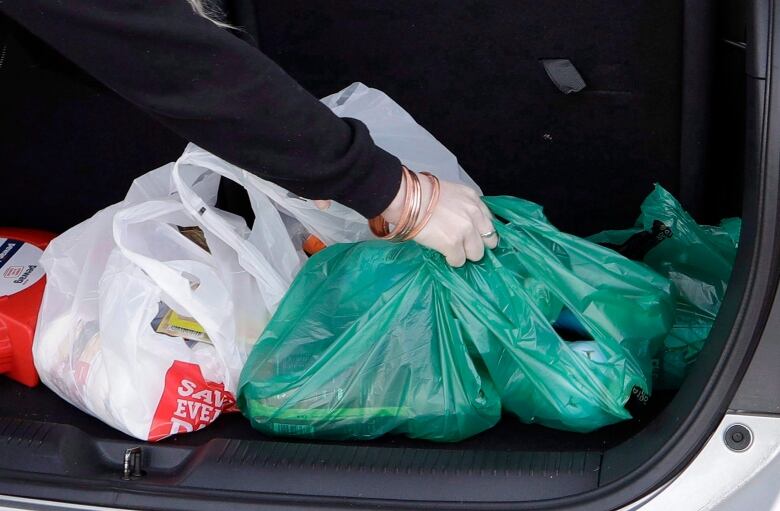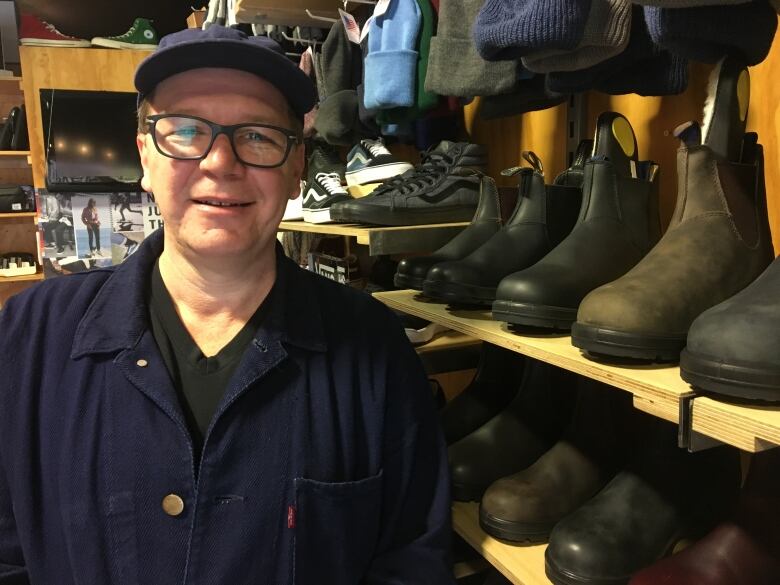Should Quebec ban all plastic bags? The Retail Council of Canada thinks so
Patchwork of municipal bylaws that ban bags based on plastic thickness creates 'nightmare' for retailers

The Retail Council of Canada is calling on the Quebec government to ban all plastic bags of any thickness from any and all stores in the province, from grocers to retail outlets.
"If they cannot be washed and used 100 times, then they should be banned," said the council's president, Marc Fortin.
The Trudeau government promised back in June to ban single-use plastics which could include bags, straws and cutlery as early as 2021.
Thecouncil has been discussing that proposed ban with the federal government, but it's not clear if the legislation would apply to all plastic bags, everywhere,Fortinsaid.
Until then, it's up to theprovinces to act,and the council has been involved in discussions with several provincial governments. Prince Edward Island and Nova Scotia have already banned the bags outright.
But Quebec "has been a little slow at seeing how important this is and why we should move forward," Fortinsaid.
Montreal's bylawmeans thicker bags
Montreal's ban on single-use bags (less than 50 microns, or 0.05 millimetres thick) went into effect in 2018, but residents haven't changed their behaviour:some 70 per cent more plastic is going to the landfill because the bags are so much thicker, Fortin said.
Ali Akhavan agrees. He owns Akhavan supermarkets with locations inNotre-Dame-de-Grce and Pierrefonds. He charges his customers 10 cents for the thicker plastic bags allowed by the bylaw.
"We used to have theplastic whichwas less weight, now they go more weight, and there is more waste," he said.
He said about half of his customers remember to bring reusable bags. For others, he offers empty cardboard boxes, he said, "because it's better for us and for them."

Meanwhile, retailers across the province are dealing with a patchwork of rules as municipalities follow Montreal's lead.
The problem is the banstargetplastics of varying thicknesses, he said, and retailers have to keep track of rules in some 1,300 different municipalities.
It's becoming a "nightmare for consumers, for us,for everybody," Fortin said.
"If we're going to do something right for the environment, it's not by going with thicker bags so we're actually sending more plastic to the landfill."
"We might as well just ban everything."
Quebec's minister of the environment is releasing a new strategy on plastic bags in the spring.
Until then, a spokesperson for the ministry, Louis-Julien Dufresne, had little to say on the matter.
"Unfortunately, we are behind in several areas, including plastics, because of the inaction of previous governments," Dufresne told CBC.
Industry can afford to ditch plastic, retailer says
Sam Papoutsis, the owner ofMile End Kicks on Montreal's Parc Avenue, says he's in favour of getting rid of plastic. It's the right thing for the retail industry to do, he said, but it's a costly move.
He offers his customers paper bags that are made in Canada, and he's not charging them for the service even though it costs him three times what plastic bags would.

"Paper obviously doesn't always do the job with certain heavier boxes. In our case, boots and shoes," Papoutsis said.
He's considering turning bags into a charitable cause by offering fabric totes with his company's name on it at an affordable rate and then donating a portion of that to an organization in need of funding.
No matter what, he said, hewants to get rid of plastic altogether and offer "something that people can reuse. Responsibly, that's our part as a retailer."
with files from CBC Montreal's Daybreak












_(720p).jpg)


 OFFICIAL HD MUSIC VIDEO.jpg)
.jpg)



























































































